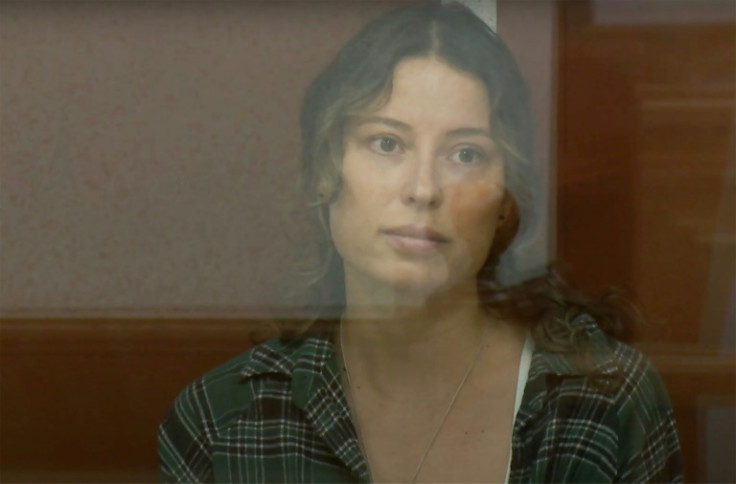US And Russia Exchange Prisoners

Russia and the United States exchanged prisoners on Thursday, the second such swap since US President Donald Trump returned to the White House as the two superpowers push for closer ties.
Moscow released US-Russian ballet dancer and spa worker Ksenia Karelina, who had been detained in Russia for 12 years on treason charges, US Secretary of State Marco Rubio said.
In exchange, the United States released Arthur Petrov, said Russian state media, citing the FSB security service. The Russian-German citizen had been facing up to 20 years in a US jail for violating export controls.
"American Ksenia Karelina is on a plane back home to the United States. She was wrongfully detained by Russia for over a year," Rubio wrote on social media platform X, adding that Trump "will continue to work for the release of ALL Americans."
Karelina's lawyer, Mikhail Mushailov, told AFP that "the exchange took place in Abu Dhabi and, as of a couple of hours ago, she was already flying out of Abu Dhabi."
The Wall Street Journal reported that, in exchange, the United States released Petrov, a German-Russian citizen who was arrested in Cyprus in 2023 at Washington's request for allegedly exporting sensitive microelectronics.
"CIA Director John Ratcliffe and a senior Russian intelligence official conducted the talks for the swap," according to the WSJ, which cited an unidentified CIA official.
"Ratcliffe was present at the Abu Dhabi airport, where the exchange took place, and greeted Karelina as the US took custody of her, according to a person familiar with the matter," the report said.
A CIA spokeswoman told the paper that "the exchange shows the importance of keeping lines of communication open with Russia, despite the deep challenges in our bilateral relationship."
"While we are disappointed that other Americans remain wrongfully detained in Russia, we see this exchange as a positive step and will continue to work for their release," she said.
Russia has yet to confirm the swap, which would be the second since Trump returned to the White House in January.
Trump and Russian leader Vladimir Putin have since pushed for a restoration of closer ties between the two countries that were severely damaged by Moscow's invasion of Ukraine.
Several meetings between the two sides have taken place, with a new round of talks beginning on Thursday in Istanbul on restoring some of the embassy operations that were scaled back following the Ukraine invasion.
Karelina, who was born in 1991 and lived in Los Angeles, was serving a 12-year prison sentence for having donated around $50 to a pro-Ukraine charity.
She was arrested in the Urals city of Yekaterinburg in January 2024 while on a trip to visit her family. She was charged with "treason."
Russia's Federal Security Service accused her of collecting funds for Ukraine's army that were used to purchase "equipment, weapons and ammunition" -- charges she denied. Her supporters say she donated to a US-based organisation that delivers humanitarian aid to Ukraine.
Petrov was accused by US authorities of illegally exporting electronic components to Russia for military use, in violation of Washington's sanctions against Moscow over the conflict in Ukraine.
In mid-February, following a call between Putin and Trump, Russia released Kalob Wayne Byers, a 28-year-old US citizen who was arrested at a Moscow airport for transporting cannabis treats.
Washington and Moscow also exchanged US teacher Marc Fogel for Russian computer expert Alexander Vinnik in early February.
The largest prisoner exchange since the end of the Cold War took place between the two rival powers took place on August 1, 2024, allowing the release of journalists, including WSJ reporter Evan Gershkovich, and opponents held in Russia in exchange for alleged Russian spies held in the West.
Several US citizens remain incarcerated in Russian prisons, with Washington denouncing "hostage-taking" to obtain the release of Russians -- including alleged spies -- imprisoned in the West.
© Copyright AFP 2025. All rights reserved.





















